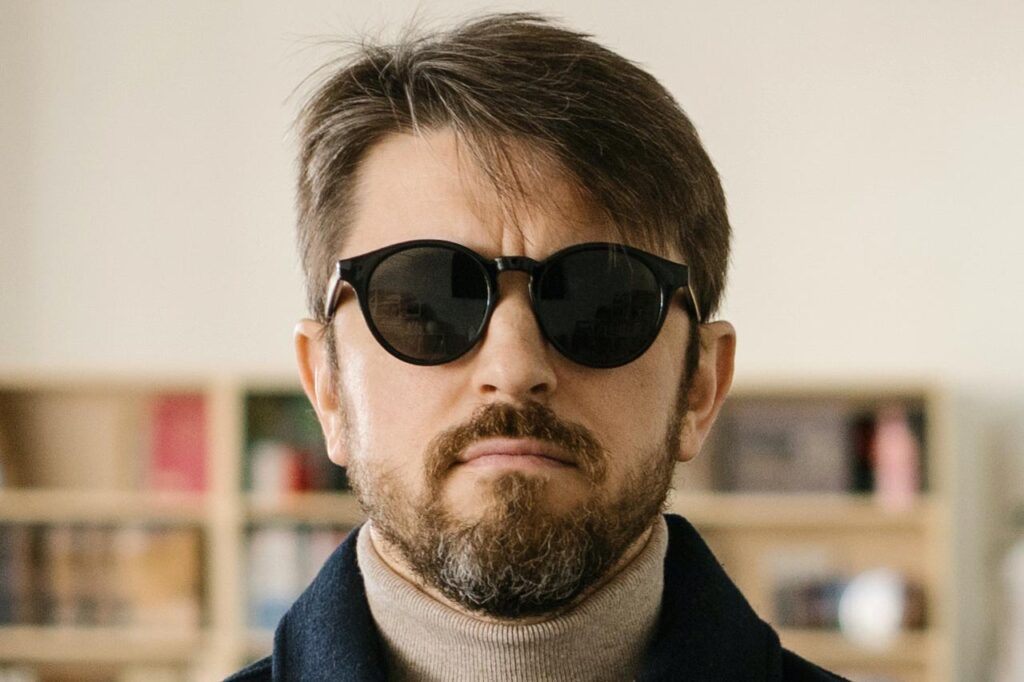Strep throat was consuming my health, my awareness, my movements. Yet, the actor in me knew the show must go on.
It was December 1988, the final week of the fall semester of my junior year at Florida State University in Tallahassee, Fla. The weather had taken a turn for the cold, and with it my immune system had gone into the tank. I had several final exams to endure, as well as directing and performing two separate scenes in my Theater Directing class.
I directed a short episode from the Arthur Miller play The American Clock. Set in the 1930s, it involved the interplay between a very focused young woman who drew comics for a living and made an interesting connection between Superman and communism; and a freelance writer who wanted to have a romantic relationship with her. The male actor thought the scene was too dry; I found the parallels between the Man of Steele’s quest for justice and good will, and Marx’s distorted vision of the proletariat uprising, to be too intoxicating to dismiss.
We had gone through the scene so often in the preceding weeks that directing it one final time in the midst of my fever wasn’t too demanding of my faculties. The challenge was yet to come-performing in one of my classmate’s scenes as a blind man who is kissed against his will.
I had rehearsed how to unfocus my eyes in order to truly appear sightless. I had made significant progress, but always in the context of a robust, healthy 20-year-old with long hair and a beard. Now, on this evening, every thought and movement required immense concentration, because all I wanted was to be home in bed under a blanket. Within a matter of hours I would be in the ER hooked up to an IV and fighting dehydration, but for now all the world was a stage.
Miraculously, I made it through the scene and even won the accolades of my classmates and the professor. My character had a certain detachment to him that night, one that even transcendent his obvious state of blindness. I felt sorry for the female actor whose responsibility it was to kiss me on the mouth, and still wonder how sick she felt feel the next day (because of the strep, not because of my lips, mind you!).
Ailing and blind, I made it through the scene, made it through the course, slowly made my way into the cold night across the campus toward my dorm room. Each step through the dark was deliberate as 10 minutes of walk time felt like 10 hours.
I thought of my character in the scene, plowing his way through the dark each day, even as a young man. Afflicted with an illness that had no known cure, he was forced to see life through the eyes of his heart and senses, required to place an inordinate amount of trust in others. The actor who played him merely had to put on the guise of blindness for a few moments, and had the bonus assignment of garbing himself with the guise of health as well.
So many times we visit the wardrobe of our guises-each day, at work, at home, at school, in our communities, in our relationships. There is the guise that wants others to believe we can see. There is the guise that wants others to believe we are well. In fact, many times we are groping like blind men searching for an elbow or a cane. We are yearning for an IV needle to pump us up with the things that restore us to vitality-passion, hope, love, perseverance, joy.
The only path to sight and wellness involves first recognizing our handicap and our ailment. It’s a decision to embrace an intentional life of visionary thinking and service to others that heals our inner need to grab more, be more, receive more.
Our moments upon the stage are fleeting and precious. We will see clearly if we first seek to see our hearts and vow to enlighten their blind spots. We will feel well if we are willing to diagnose what makes our minds ail and accept the tough love, decisions and action steps that offer the cure.
